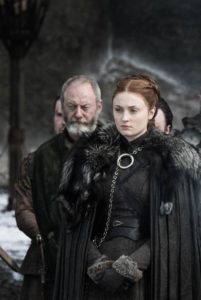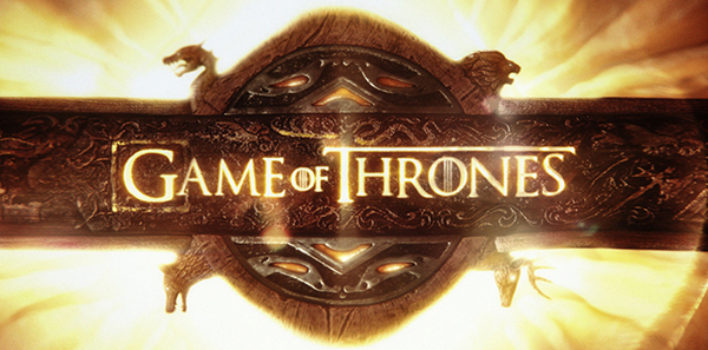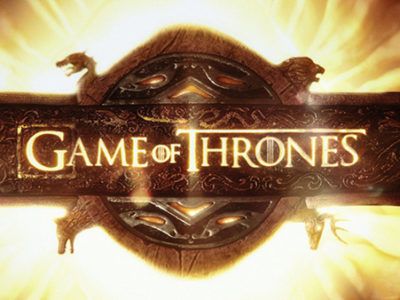Game of Thrones S8E4 – The Last of the Starks
 The fight against the dead is over, the living have defeated them, and the realm no longer has to fear slipping into eternal darkness. As we learned in this week’s episode, the implications of this significant victory against evil undead powers that threatened the very fabric of existence are… well, non-existent really. When you tally up all those bodies on funeral pyres, it sure looks like a great cost to bear. But it seems our characters (read: writers) are more interested in pithy relationship drama, than exploring any real significance of what has just happened.
The fight against the dead is over, the living have defeated them, and the realm no longer has to fear slipping into eternal darkness. As we learned in this week’s episode, the implications of this significant victory against evil undead powers that threatened the very fabric of existence are… well, non-existent really. When you tally up all those bodies on funeral pyres, it sure looks like a great cost to bear. But it seems our characters (read: writers) are more interested in pithy relationship drama, than exploring any real significance of what has just happened.
It was a curious way to spend 90 of the precious remaining minutes of this story on who would or would not be living happily ever after with whom, but we do have some nuggets to examine, so I’ll try to remain positive. Despite the backlash over “The Long Night” and the battle of Winterfell, I was a fan of that episode, especially the conclusion, and was expecting more from this week’s follow up. A lot more. I can’t blame those celebrating in the halls of Winterfell for their feast after such a monumental victory, or even their indulgence in drink and merriment, but it sure seems like things moved on hurriedly for the sake of plot points.
“Without Littlefinger and Ramsay and the rest, I would’ve stayed a little bird all my life.” – Sansa Stark
 The thematic focus here is of identity, which is appropriate even if it’s not fully explored. Sansa embodies the struggle best here, understanding that who she is now is thanks in part to the horrors she has faced, problematic as that may be. Arya, too, knows that she cannot be Gendry’s lady in a castle. Though part of her may wish for a happy ending like that, she knows that image has never been and never will be her identity. Then there’s Jamie, admitting (or at least making an excuse) that the sum of his actions may mean he is just as hateful as Cersei.
The thematic focus here is of identity, which is appropriate even if it’s not fully explored. Sansa embodies the struggle best here, understanding that who she is now is thanks in part to the horrors she has faced, problematic as that may be. Arya, too, knows that she cannot be Gendry’s lady in a castle. Though part of her may wish for a happy ending like that, she knows that image has never been and never will be her identity. Then there’s Jamie, admitting (or at least making an excuse) that the sum of his actions may mean he is just as hateful as Cersei.
But what we’re really here to explore, for better or worse, is what to make of the lineage of Jon. Destined to clash over the throne with Daenerys (if they manage to win it in the first place), it is his identity that is the crucial pivot point of our story’s end. But as Dany tried to make Jon see, and Varys later echoes, it may not be up to either of them how that plays out now that Jon’s true identity has been revealed. The greater powers at play will likely take them for the powerful pawns they are, and disregard their individual identities in order to keep the game going.
“The lord of light – we play his game for him, we fight his war and win, and then… [he disappears]. No signs, no blessings. Who knows what he wants?” – Davos
 I have recently been reading a lot from The Storybook Bible to my young daughter. Yes, I know it may not hold up well against any deep theological examination, but it’s a great way to illuminate scriptures in a simple, approachable way for young minds. It does this by taking the highlights of a story and summing up how they fit into the larger narrative. The scriptures all point to Jesus, and each chapter here ends with how it does so. For all the good it does illustrating the most Christocentric parts out of each story, it only has time to focus on the big moments of real people like Noah, Jacob, or Mary.
I have recently been reading a lot from The Storybook Bible to my young daughter. Yes, I know it may not hold up well against any deep theological examination, but it’s a great way to illuminate scriptures in a simple, approachable way for young minds. It does this by taking the highlights of a story and summing up how they fit into the larger narrative. The scriptures all point to Jesus, and each chapter here ends with how it does so. For all the good it does illustrating the most Christocentric parts out of each story, it only has time to focus on the big moments of real people like Noah, Jacob, or Mary.
While it has been an enjoyable experience for my daughter and I to read together, I keep thinking about the mundane things that these very real people went through. As Brienne tried to make Jamie see that he isn’t only the hateful things he has done, the big, easy-to-see moments alone do not define any of us. The Storybook Bible most certainly shows the God of the big, mankind saving moments, but we also have a God who is King of our mundane. I loved Davos’ words on the Lord of Light disappearing after the big moments. That may be how God can feel to us sometimes, but because of the gospel, we know he works in the everyday things we do (the same cannot be said for R’hllor). And the people we break bread with, the jobs we spend 40 hours a week working, the story readings before bed with our kids, they matter to our Creator just as much as the big things.
Largely, I think Game of Thrones the show has missed the mundane for the highlights. That’s partly understandable. There is a lot of characters, settings and lore to fit into the overarching narrative. But I hope that it’s the little moments of character that lead directly to our conclusion. The individual threads are just as important as the final tapestry, and the finality of this saga deserves to echo those. We’ve seen that Jaime isn’t just a Kingslayer, and Daenerys show compassion over madness, and most importantly, we’ve seen that Jon is capable of denying what he wants to do the right thing. If he wasn’t, he might still be north of the wall with Ygritte.
It is Jon’s character in the mundane that should bring about the ending to the game. If Daenerys is really bent on destroying King’s Landing, and Cersei will let her do it, he alone holds the key to stopping it. After the conversation between Tyrion and Varys, it seems the choice that must be made is between Jon and Dany, narratively ruling out Cersei to be the last pawn standing. So the show’s writers have their own choice to make: honor the mundane or go for the flashy highlight. Someone get them a cup of Starbucks to perk themselves up because they really need to choose wisely.





